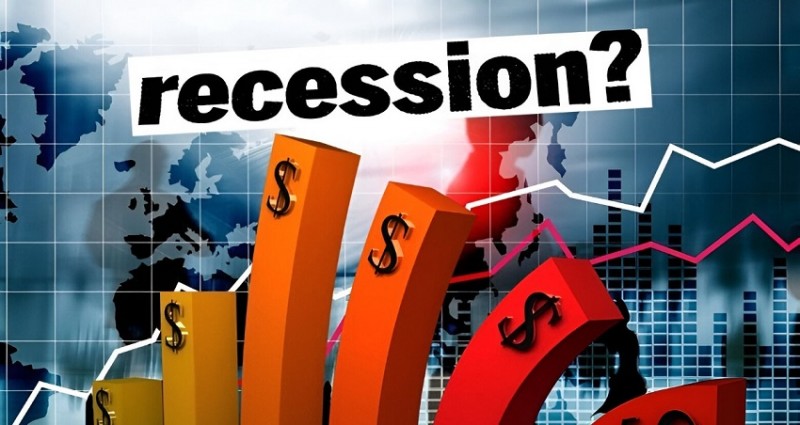
US Economy Outlook: Following a weaker-than-expected jobs report for July, new concerns have arisen about the resilience of the US economy. The report revealed slower hiring rates and a rise in the unemployment rate to 4.3%, sparking fears of a potential recession. Despite these worries, some economists maintain that the underlying economic fundamentals remain robust. They acknowledge, however, that the risk of an economic downturn is growing and should be carefully monitored.
Jittery investors may be overstating the threat of a US recession, according to economists, but it's clear that the era of rapid growth for the world’s largest economy is coming to an end. The recent global sell-off in stocks, which began on Friday and continued into this week, was driven by worries about the US economy, especially following a weaker-than-expected jobs report.
Stock prices have dropped sharply as investors criticized the US Federal Reserve for maintaining high interest rates, currently between 5.25% and 5.5%, despite signs of an economic slowdown. However, many economists are optimistic that the US will experience a "soft landing," with inflation decreasing to the Fed's target of 2% without a significant rise in unemployment.
Jason Furman, a former White House economist now teaching at Harvard, believes that the current indicators suggest the economy is not heading for a recession. “Almost every real economy indicator is growing, some strongly,” he stated. “Anyone who is certain we're heading into a recession is overstating their understanding of the economy.”
The latest jobs report showed a fourth consecutive monthly increase in the unemployment rate, rising to 4.3%. This follows disappointing earnings reports from companies like McDonald’s and Diageo, which have raised concerns about consumer weakness in the US.
Some analysts worry that the US could be heading into a recession deep enough to disrupt the global economy. “When concerns about a recession start, it's often a sign that a recession may be imminent,” said Andrew Hollenhorst, an economist at Citi. “The rising unemployment rate could lead to temporary layoffs becoming permanent.”
The data has also intensified calls for the Federal Open Market Committee to lower interest rates in its next meeting in September. Despite this, Fed officials have remained calm. Chicago Fed President Austan Goolsbee remarked that the stock market is more volatile than the US central bank.
Markets are now anticipating four or five quarter-point rate cuts this year, compared to three before the recent jobs report. “The decision-making risk for the FOMC has shifted,” noted Adam Posen, President of the Peterson Institute for International Economics.
Yet, some economists argue that the recent data is less alarming than it seems. They believe the US is still nearing full employment. “The 114,000 jobs added in July is what the US needs to match labour supply,” said Ernie Tedeschi, former chief economist on the White House’s Council of Economic Advisors and now a Yale professor. “It’s not a weak report but a trend report,” he added.
Fed officials have also highlighted that the current unemployment rate is low by historical standards. San Francisco Fed President Mary Daly commented that the jobs data suggest a slowdown rather than a severe downturn. Goolsbee also stated that despite weaker non-farm payroll numbers, the economic situation doesn’t yet resemble a recession.
A key concern is whether US consumers can sustain economic growth if unemployment continues to rise and pandemic savings dwindle. Delinquency rates on car loans and credit cards have increased, especially among lower-income households, but they have not yet reached levels seen during the 2008 financial crisis, according to the New York Fed.
Ryan Sweet, Chief US Economist at Oxford Economics, emphasized that consumer health is crucial for the US economy. “Overall, consumers are in decent shape, but there are weaknesses, particularly among lower and middle-income households.”
Others believe that the impact on the poorest households might not be enough to derail the entire economy. Philipp Carlsson-Szlezak, Global Chief Economist at BCG, suggested that the hardest-hit groups do not have enough economic power to bring down the whole economy.
Retail discounts from major chains like Walmart and Target could also help maintain consumer spending. “Consumers are getting a bit of extra purchasing power,” said Paul Christopher, Economist at Wells Fargo, “even if their credit cards are maxed out.”